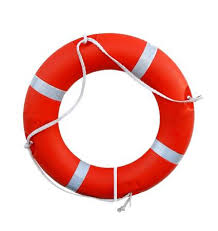
I looked at my oldest grandson right before his Bar Mitzvah and almost couldn’t believe it, I was really standing in this place, in this moment. He is such a good boy, a wonderful student, his focus on the future and secure in the world of Torah in which his parents have raised him. I couldn’t help but think back to another boy, only nineteen years old, ripped away from the security of family and friends and thrust into a world of guns, war, death and a fight for survival.
On December 7, 1941, this boy was a college student at the University of Buffalo. His world collapsed as the ships in Pearl Harbor sunk to the bottom of the ocean and the Japanese retreated in victory leaving behind carnage and a nation in shock. As the planes of the enemy flew back across the Pacific the lives of American youth changed forever. His was no exception.
The boy met with his friends the day after the attack and all of them agreed it would be better to enlist in the armed forces rather than wait for the inevitable draft notice. At least this way they might have their choice as to which of the military services they would enter. So it was, this bunch of Jewish kids from Buffalo, New York went downtown to the recruitment station and enlisted.
The young man joined the army and I’m sure, like many in the armed services at the time, felt scared and alone, wondering what the future held.
As was the case with many Jewish kids of the day, he had grown up with traditional Jewish values in the home, standards that were not adhered to when out with friends. War is a frightful thing and it is anyone’s guess as to how the children who go off to war will re-enter the world of their youth if they are lucky enough to survive. I am sure that in the chaos most of those boys didn’t think about Shabbos, holidays or kashrus; they were fortunate to get the meal packs provided by the military and ate what they were served.
One day, the young soldier was on a military transport ship when the Japanese found their target and blew the vessel out of the water. Many of the soldiers on board were killed. Those who escaped the direct hits jumped onto rafts or held onto the fragments of the vessel that could be used as floatation devices. Our soldier was able to latch onto just such a piece to keep him afloat in the waters of the Pacific.
He spent his time on the raft – no one ever found out how long that was – beseeching the God he was raised with. If only he were lucky enough to survive. If only here were lucky enough to survive and be rescued. If only he was lucky enough to survive and be rescued by the allied troops and not the Japanese. He vowed he would never – ever – eat non-kosher food again. He was luck enough. The Americans found him and he was taken to a hospital in Australia where one of the attending physicians was his brother-in-law. That was the first and last time he would ever utter a word about his horrific experience to anyone. Like many of that great generation, they never discussed what happened in the war. Word of his time at sea only survives from the bits and pieces his brother-in-law passed to his wife, who later told the soldier’s wife, who at some point mentioned it to the children, under the condition that they never bring it up with their father.
The soldier healed, the war ended. He returned to his native Buffalo, got married some four years later and he and his wife were blessed with four children. His home, like that of his parents, was traditionally Jewish, but his commitment to kosher was fierce. Because of his pledge, his strict adherence to eating only kosher food two of his children wanted to learn more about their Jewish roots, eventually deciding to expand their commitment and become completely observant Jews, giving him 12 frum grandchildren. At the end of his life, the connection that was forged in the vast Pacific years earlier was solidified and the soldier chose a religious Jewish lifestyle. He had finally made his way all the way home.
But why did I choose to tell my grandson such a story before his Bar Mitzvah? Because if this man hadn’t survived the initial blow to his ship, if he hadn’t spent his time in the water pleading with his Father in Heaven and if he hadn’t survive to go back to Buffalo, marry his wife and have four children, then this Bar Mitzvah boy, his mother and his grandmother would not be here today. The young soldier was my father, Avraham Aber ben Yaakov HaCohen, Armand A. Prince, the bar-mitzvah boy’s great-grandfather. And as my grandson celebrated his bar-mitzvah and accepted his place in the Jewish people, the yoke of Torah and the fear of Heaven, I could not help but reflect that from my father’s commitment, his moment at sea, came this grandson; his pledge which led me to want more than the Conservative lifestyle in which I was raised. Though he did not tell us his story in words, he passed down a connection, a feeling, a heritage.
The words of this author reflect his/her own opinions and do not necessarily represent the official position of the Orthodox Union.



